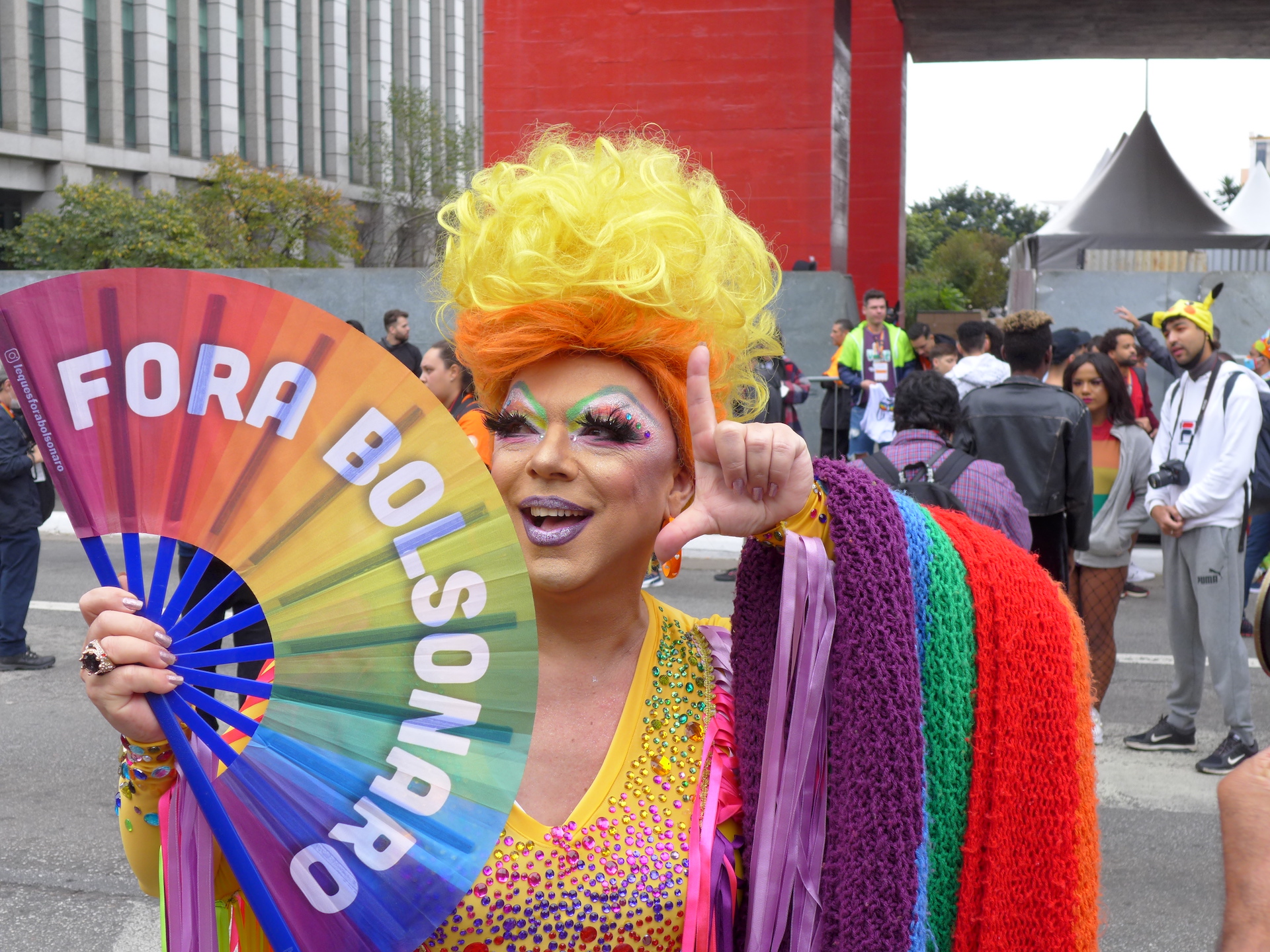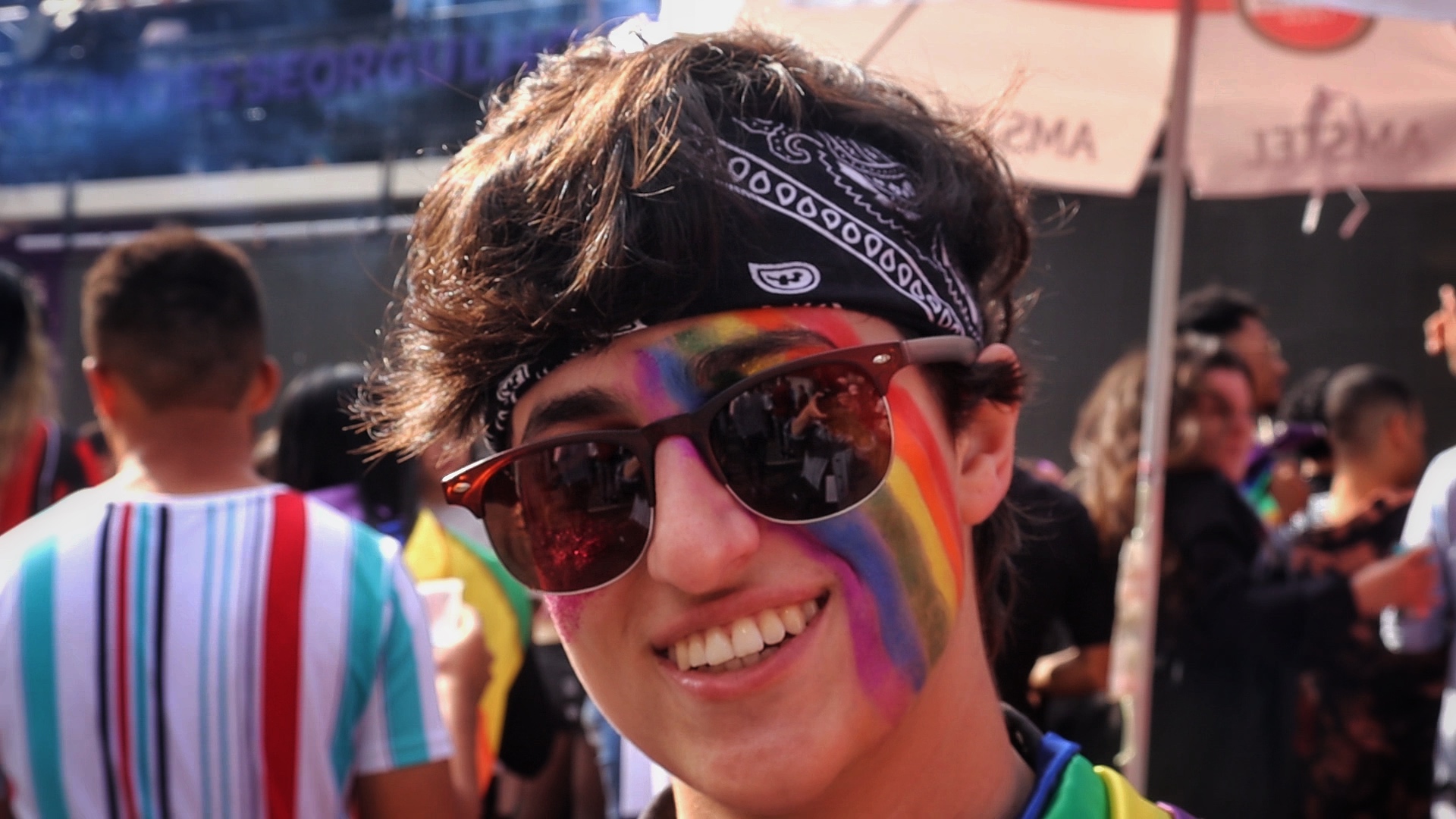SÃO PAULO, BRAZIL – After two years of online celebrations due to COVID-19, millions of people filled one of the most iconic avenues in Sao Paulo, Avenida Paulista, to celebrate the 26th edition of the LGBT+ Pride Parade. Considered one of the largest Pride parades in the world, this year’s parade attracted over three million people, according to organizers.
“It’s unbelievable, it’s a wonderful comeback!” says Roberto Dias.
“Two years without the parade was rough. I am now reconnecting with people I haven’t seen in months, years,” adds the 28-year-old engineer from São Paulo.
With 19 floats in the parade and dozens of artists performing, this year’s theme is ‘Vote with pride – for politics that represents’, aiming to increase voter awareness and the upcoming October general election.
“This year, in particular, we are discussing the topic of democracy. The people need to learn from the people because it is the people that need to be represented. We need to set up a parliament to represent us,” journalists told Claudia Regina Garcia, President of APOLGBT (Association of the LGBT Pride Parade of São Paulo).
Adding to the irreverence that traditionally marks the LGBT+ Pride Parade in Sao Paulo City, this year’s event is also being seen as a political protest in defense of civil rights and criticism of the current President. Many posters and rainbow-colored flags held sayings against President Bolsonaro.

“Our vote is our strength,” Leonidas Ferraz tells The Rio Times. Ferraz, from Minas Gerais state, says LGBTQ+ people should vote for those who will represent them at the federal and state levels.
“We need to be in the decision-making positions of this country: The Chamber of Deputies, The Senate,” said São Paulo City lawmaker Carol Iara to the crowd as the parade began. Iara is the first intersex elected official in the country, in addition to being black, trans, and living with HIV.
In line with the political theme, one of the parade’s highlights, singer Pabllo Vittar, was cheered wildly by the public when he chanted against Brazil’s current leader.
Despite the dozens of politicians, artists, and influencers who attended the parade, the real protagonists of this year’s parade, like the earlier versions, were not the ones up on the floats but rather those on the streets, singing and dancing.

“I come from a town of fewer than 22,000 people in the Northeastern state of Ceara, and we just held our third Pride parade,” Wesley, 39, tells The Rio Times.
“I came down with a group, and we are all delighted we did. We must hold our ground or risk losing the rights we have already been granted,” he says.
Data from the Military Police revealed that 2,000 police officers, 250 vehicles, 60 horses, dogs, and aircraft were used to monitor the event. According to officials, no significant incidents were reported.

